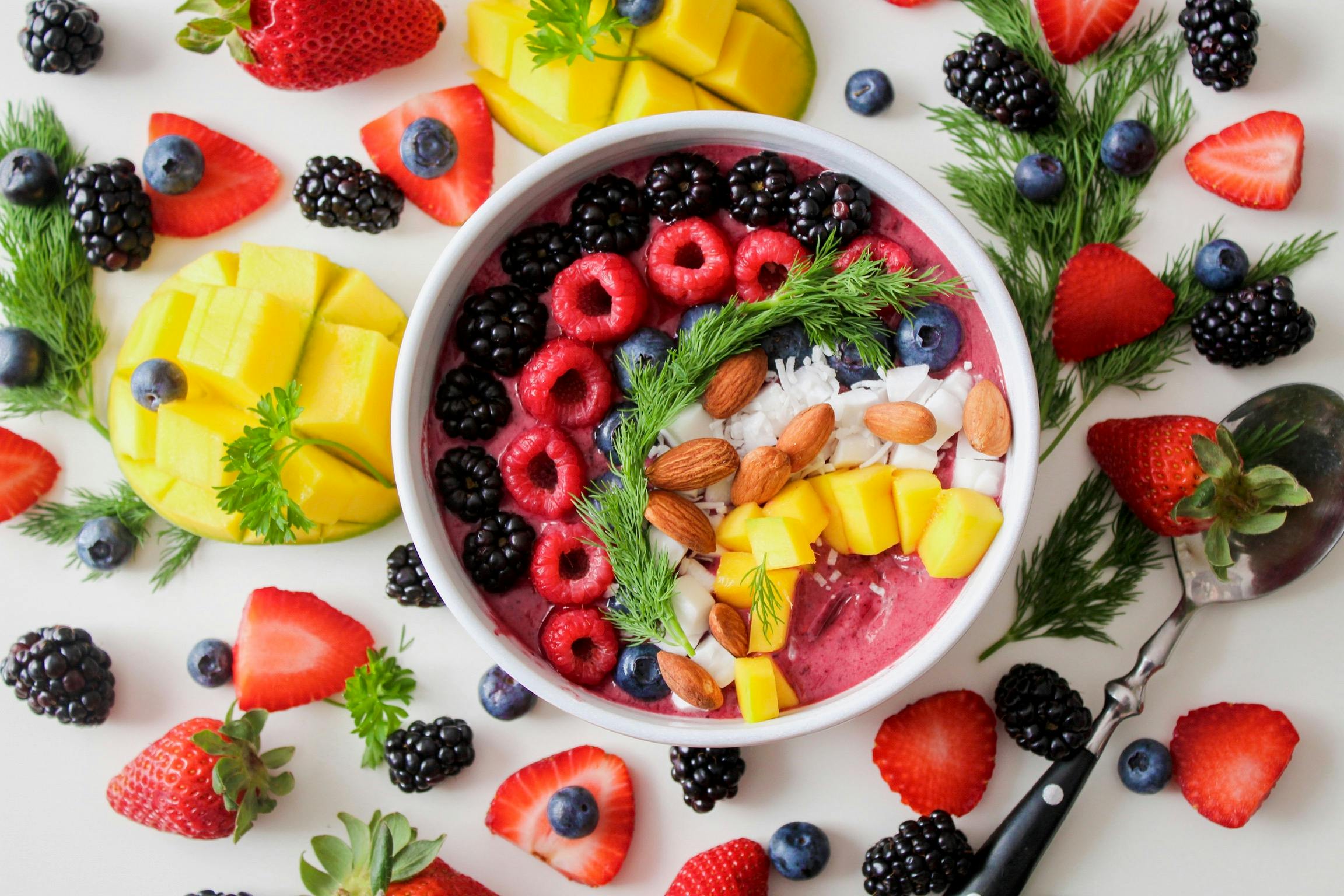Studying for the MCAT requires not only intellectual prowess but also physical stamina. You’ll need every advantage you can muster and that includes eating the best food for brain power boosts!
As a future doctor embarking on this challenging MCAT prep journey, it’s super important to recognize the symbiotic relationship (little content plug there!) between a well-balanced diet and optimal academic performance.
Break out the notepad because we’re exploring the best diet to adopt when preparing for the MCAT and shedding light on the crucial role nutrition plays in enhancing cognitive function and overall well-being. Internalizing this information will help you not only as you prepare to take your exam, but also later when you are in medical school, residency, and as a physician.
Fuel Your Mind: Top Foods for Brain Power
The Brain’s Feast: Nutrient-Rich Foods
As you know from your content review (or as you’ll soon learn), the brain is a voracious consumer of energy. Providing it with the right nutrients is vital for sustaining focus, memory, and critical thinking during your study sessions.
A diet rich in essential nutrients such as omega-3 fatty acids, antioxidants, vitamins, and minerals can significantly boost cognitive function. Incorporating foods like fish, nuts, seeds, leafy greens, and berries into your daily meals can provide the brain with the necessary fuel for optimal performance.
The Power of Omega-3 Fatty Acids
Omega-3 fatty acids are renowned for their brain-boosting properties. Studies have suggested that omega-3 fatty acids play a crucial role in improving cognitive function, enhancing memory, and reducing mental fatigue.
Foods like salmon, walnuts, and chia seeds are rich sources of these essential fats. Including these foods in your diet can contribute to a sharper mind and improved concentration during those lengthy MCAT study sessions.
Try It: Mix up a chia pudding to start your morning or munch on unsalted mixed nuts when you need that afternoon snack to tide you over until dinner.
Antioxidants: Guardians of Brain Health
Antioxidant is more than an infomercial buzzword! A diet high in antioxidants is not only beneficial for physical health but also for cognitive well-being.
Antioxidants, found in abundance in fruits and vegetables, help combat oxidative stress and inflammation in the brain. Remember learning about free radicals in chemistry class? They’re no good for you, and antioxidants can help protect you from their harmful effects.
Blueberries, kale, spinach, and citrus fruits are excellent choices to introduce into your diet. These antioxidants play a key role in protecting brain cells, promoting optimal neural communication, and aiding in efficient studying!
Sign up to get expert tips and exclusive invites to free MCAT classes and medical school admissions workshops!
Hydration: The Elixir of Focus
You’ve heard it before, but we’re going to repeat it. Staying hydrated is a fundamental aspect of maintaining cognitive function.
Dehydration can lead to fatigue, decreased alertness, and impaired concentration. As you dive into complex MCAT study materials, it’s crucial to prioritize adequate water intake. Hydration ensures your brain is firing on all cylinders during those intensive study sessions!
Try It: Aim to drink at least eight glasses of water a day, and consider incorporating hydrating foods like watermelon and cucumber into your meals.
Balanced Meals: Sustaining Energy Levels
Opting for balanced meals that include a combination of carbohydrates, proteins, and healthy fats is key to sustaining energy levels throughout the day. It’s also a sustainable approach to healthy eating.
Whole grains, lean proteins, and healthy fats provide a steady release of energy and prevent the crashes associated with sugary snacks and refined carbohydrates.
Try It: Consider meals that include quinoa, grilled chicken, avocados, and a variety of colorful vegetables to maintain stable energy levels during your MCAT preparation.
The Science Behind Food and Brain Power
The Gut-Brain Connection
Beyond feeding the brain directly, it’s essential to acknowledge the intricate connection between the gut and the brain. A healthy gut microbiome has been linked to improved mood, reduced stress levels, and enhanced cognitive function.
Incorporating probiotic-rich foods such as yogurt, kefir, and fermented vegetables can positively impact your overall well-being, helping you manage the stress associated with MCAT preparation.
Everything in Moderation
Many students find themselves reaching for chocolate and chips when feeling the stress of MCAT prep. You won’t catch me saying that you should cut out these foods, but it is important to enjoy these calorie-dense, low-nutrient foods in moderation.
Little treats to reward yourself can be key to long study sessions, but I encourage you to find other healthy rewards that are not food-related, such as reading a chapter of your favorite book or spending more time with friends.
Conclusion
Choosing the right diet and food for brain power when studying for the MCAT is not just about satisfying hunger, but also about fueling success.
A nutrient-rich diet that prioritizes omega-3 fatty acids, antioxidants, hydration, and balanced meals can contribute significantly to optimal cognitive function and sustained energy levels.
Your nutritional choices are an integral part of their MCAT preparation strategy because a well-fed body and mind are better equipped to conquer the challenges that lie ahead.
Another crucial part of your MCAT prep is a solid study plan and the right prep materials. Whether you need the flexibility of a Self-Paced Course, the instruction of a live 515+ Course, or the 1:1 attention of a private MCAT tutor, Blueprint MCAT has the MCAT prep option that works for your learning style!
Get started now by creating a Blueprint MCAT account to create a free personalized study plan, access a free MCAT practice test, and more!





